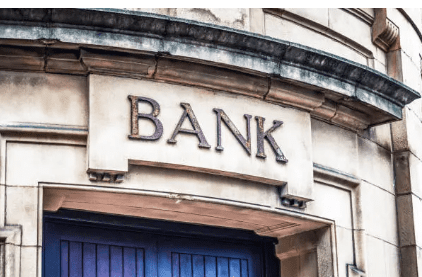Shares of big UK banks, such as Natwest, Barclays, and Lloyds, fell on Wednesday as investors worried about possible new taxes from the Labour government in October’s budget. The concerns began when the new Prime Minister, Keir Starmer, said that those with “broad shoulders” should help more to fill a large financial gap that Labour says the previous Conservative government left behind.
Natwest and Barclays experienced some of the biggest drops on the FTSE 100 index, falling by 4.1% and 3.7%, respectively. This sharp fall caused each bank to lose more than £1 billion in their market value. Meanwhile, Lloyds Banking Group, which is the largest domestic lender in the UK, saw its shares fall by 3.3%. Other banks, like HSBC and Standard Chartered, which are focused on Asia, also saw their shares dip slightly by 0.8% and 1.5%, respectively.

The worries started earlier in May when Rachel Reeves, who is now the Chancellor, said she had “no plans” to increase the surcharge on bank profits or to introduce a new financial transaction tax. However, after Labour came into power, concerns grew about whether this position would change in the upcoming budget.
Keir Starmer’s first major speech since becoming Prime Minister added fuel to these concerns. He suggested that those who are financially stronger should help more in fixing what Labour describes as a £22 billion “black hole” in public finances. This has led to speculations that the banking sector, which has seen big profits recently, might become an easy target for new taxes.
The banking sector had a particularly strong year in 2023, with Lloyds, HSBC, Barclays, and Natwest together reporting a record £44.2 billion in pretax profits. This was a 41% increase from £31.4 billion in 2022, mainly because of higher interest rates set by the Bank of England. Higher rates allowed banks to charge more on loans, significantly boosting their earnings.
Adding to this, data from the Treasury Committee in May showed that major banks earned over £9 billion in interest on their central bank reserves in the last year, a rise of 135% from 2022. This has led some to believe that banks could be asked to pay more in taxes, including a potential windfall tax, which targets companies that have made unusually high profits.
A former senior adviser in the government mentioned that banks have been profiting well from higher interest rates, saying, “They’ve got broad shoulders, and no one likes banks.” This statement suggests that some people might support the idea of taxing banks more heavily.

However, many financial experts and lobby groups, like TheCityUK, strongly oppose any new taxes on banks. They argue that a windfall tax could harm Britain’s competitiveness by discouraging businesses and investors from choosing the UK over other global financial hubs. A report from the non-profit group Positive Money in February found that a windfall tax on the profits of the biggest four banks could raise between £3.5 billion and £14 billion.
While Rachel Reeves, the Chancellor, has previously said she had “no plans” to raise taxes on banks, the recent comments from Labour leaders have not ruled out the possibility. Other options that the Labour government might consider include increasing the capital gains tax rate to align it with income tax. Reeves has not clearly stated whether such a change would happen.

In conclusion, the uncertainty around the Labour government’s plans for taxes on banks is creating a lot of worry in the financial sector. Investors are closely watching the situation, trying to figure out if new taxes are on the horizon. For now, the fear of a potential “tax raid” has led to a sharp drop in the shares of some of the UK’s biggest banks, and only time will tell how this unfolds.


